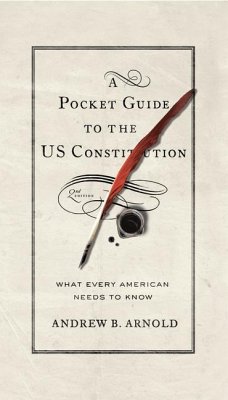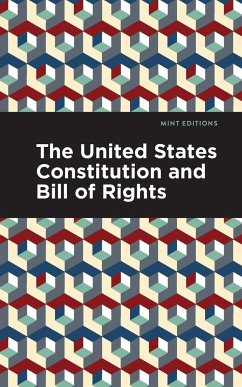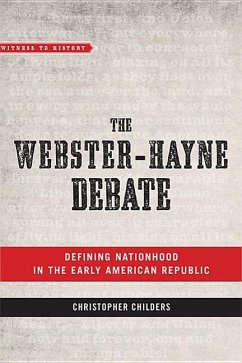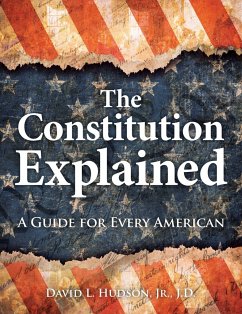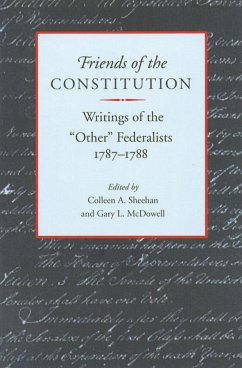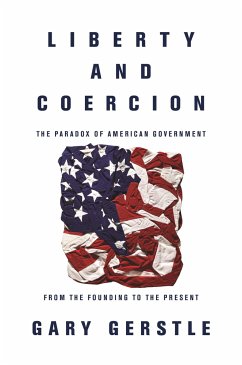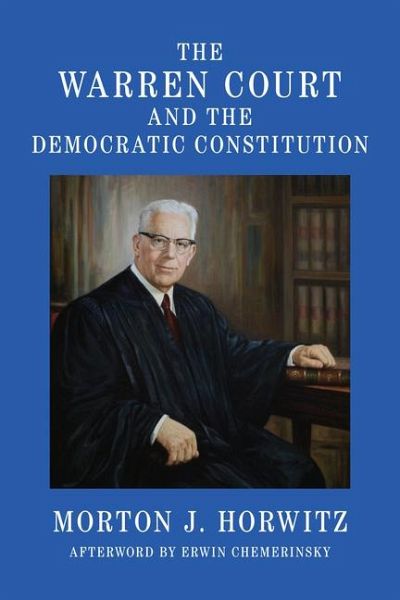
The Warren Court and the Democratic Constitution
Versandkostenfrei!
Versandfertig in über 4 Wochen
22,99 €
inkl. MwSt.

PAYBACK Punkte
11 °P sammeln!
A timely history of the profound impact of Earl Warren's Supreme Court on many areas of modern American government and society From 1953 to 1969, Earl Warren served as chief justice of the US Supreme Court. During that time, the Warren Court made a number of historically important decisions involving anti-miscegenation laws (Loving v. Virginia), the right to privacy (Griswold v. Connecticut), and, perhaps most important, racial segregation (Brown v. Board of Education). In The Warren Court and Democratic Constitution, Horwitz highlights the radical shift in traditional jurisprudential ideas th...
A timely history of the profound impact of Earl Warren's Supreme Court on many areas of modern American government and society From 1953 to 1969, Earl Warren served as chief justice of the US Supreme Court. During that time, the Warren Court made a number of historically important decisions involving anti-miscegenation laws (Loving v. Virginia), the right to privacy (Griswold v. Connecticut), and, perhaps most important, racial segregation (Brown v. Board of Education). In The Warren Court and Democratic Constitution, Horwitz highlights the radical shift in traditional jurisprudential ideas that occurred during Earl Warren's tenure as chief justice. He details how Brown v. Board of Education exerted a powerful influence on the agenda of the Warren Court and reshaped almost every subject area in constitutional law. With this decision, the concept of a "living Constitution," the idea that the Constitution ought to develop to accommodate social change, emerged and was institutionalized by the Court. Brown inspired a more active reading of the Equal Protection Clause, and the Court soon applied this expanded notion of "equal protection" to legislative apportionment, recognized the rights of supposed "outsiders" (e.g., undocumented peoples and children born out of wedlock), and initiated a new era of legal attacks on gender discrimination. The Warren Court's jurisprudence is radically opposed to the current Supreme Court's emphasis on originalism, the approach of interpreting the Constitution according to its meaning at the time of writing. Readers interested in an alternative to originalism, as well as Supreme Court history and civil rights, will gain a deeper understanding of the profound impact of the Warren Court on many areas of modern American government and society.




